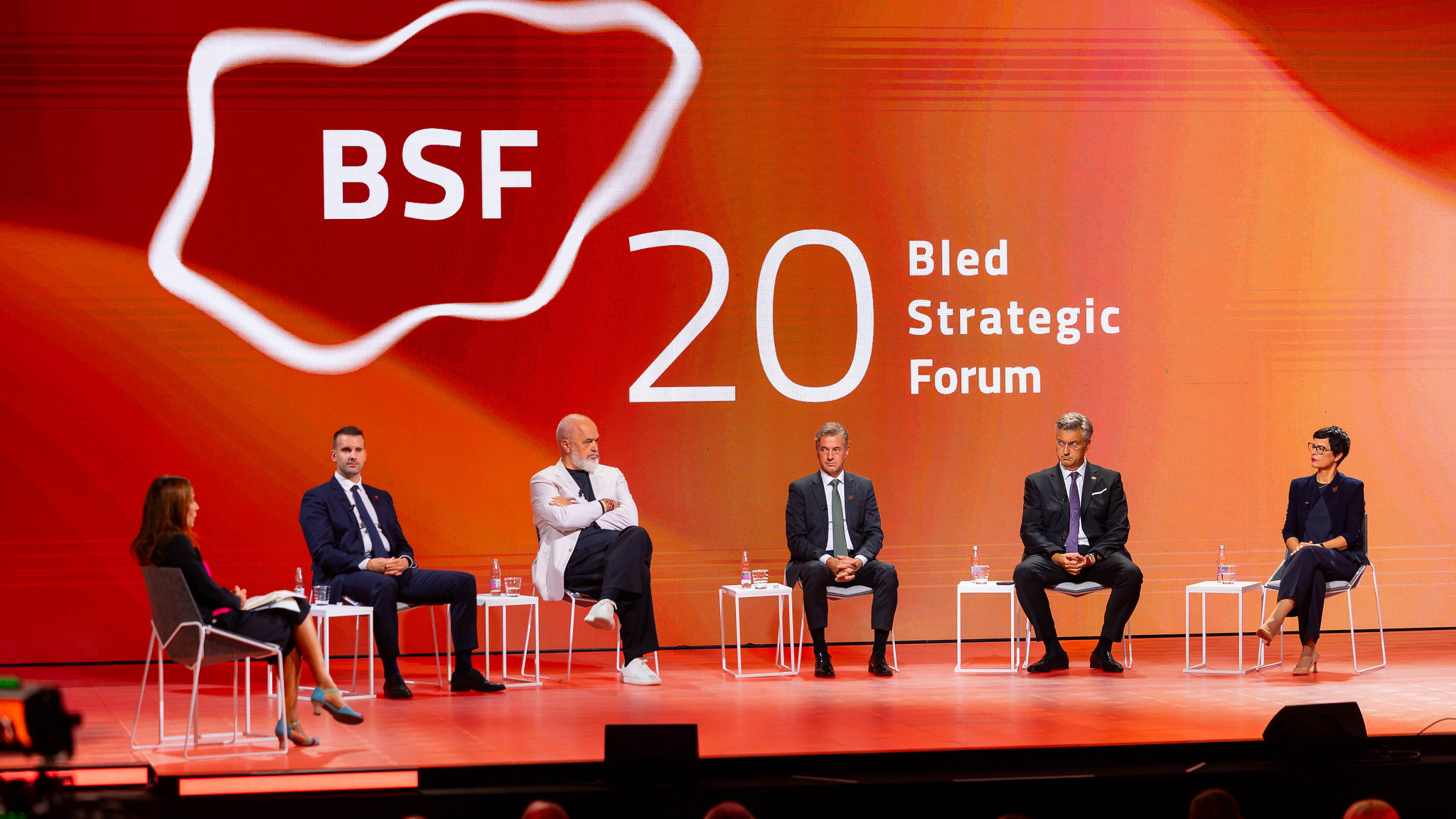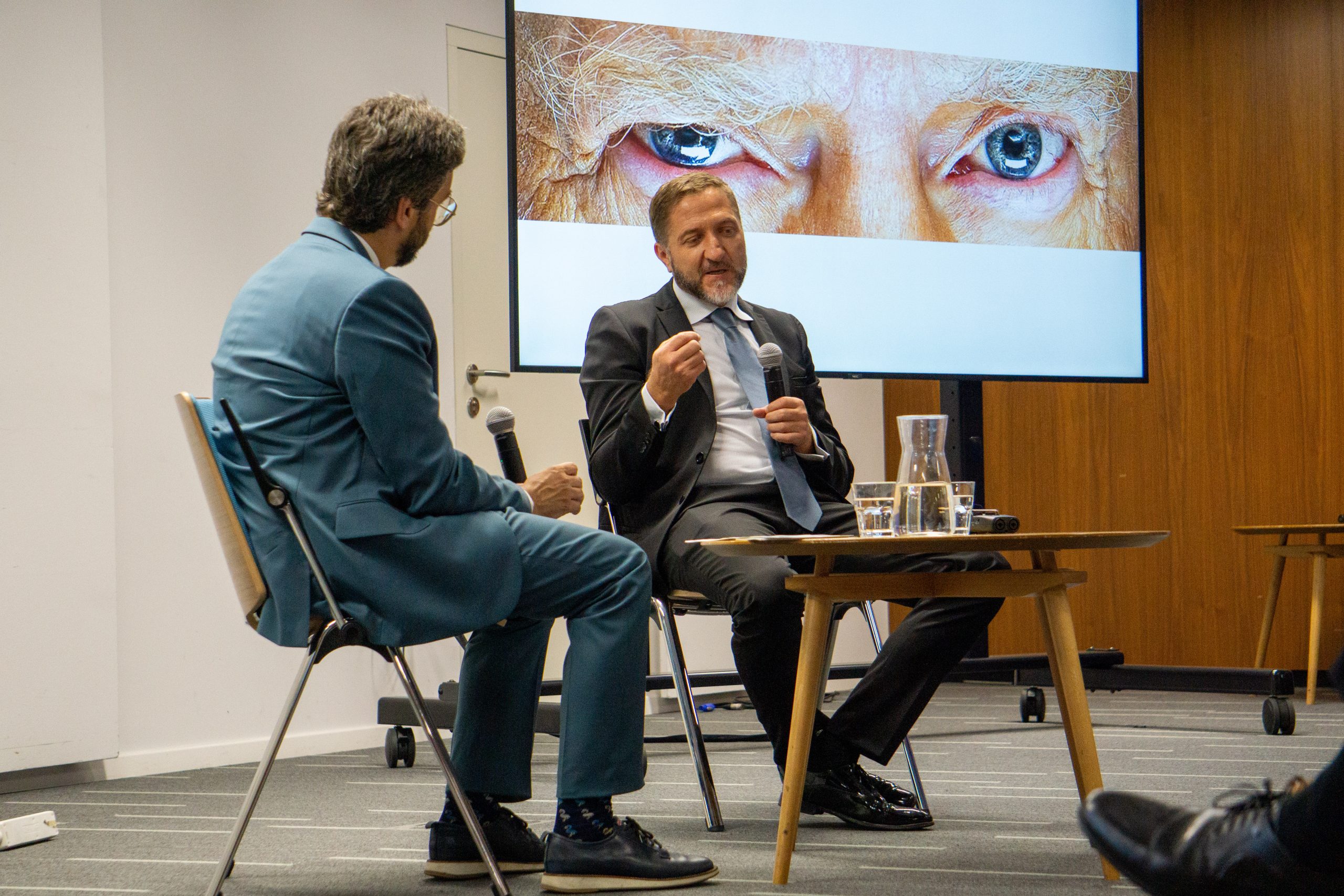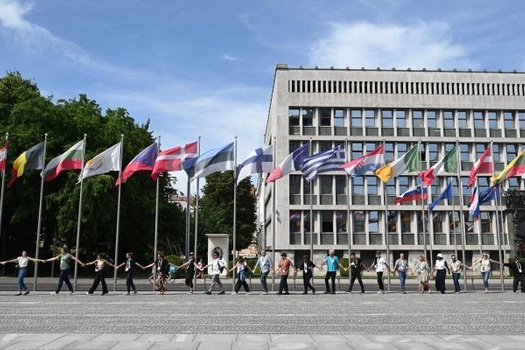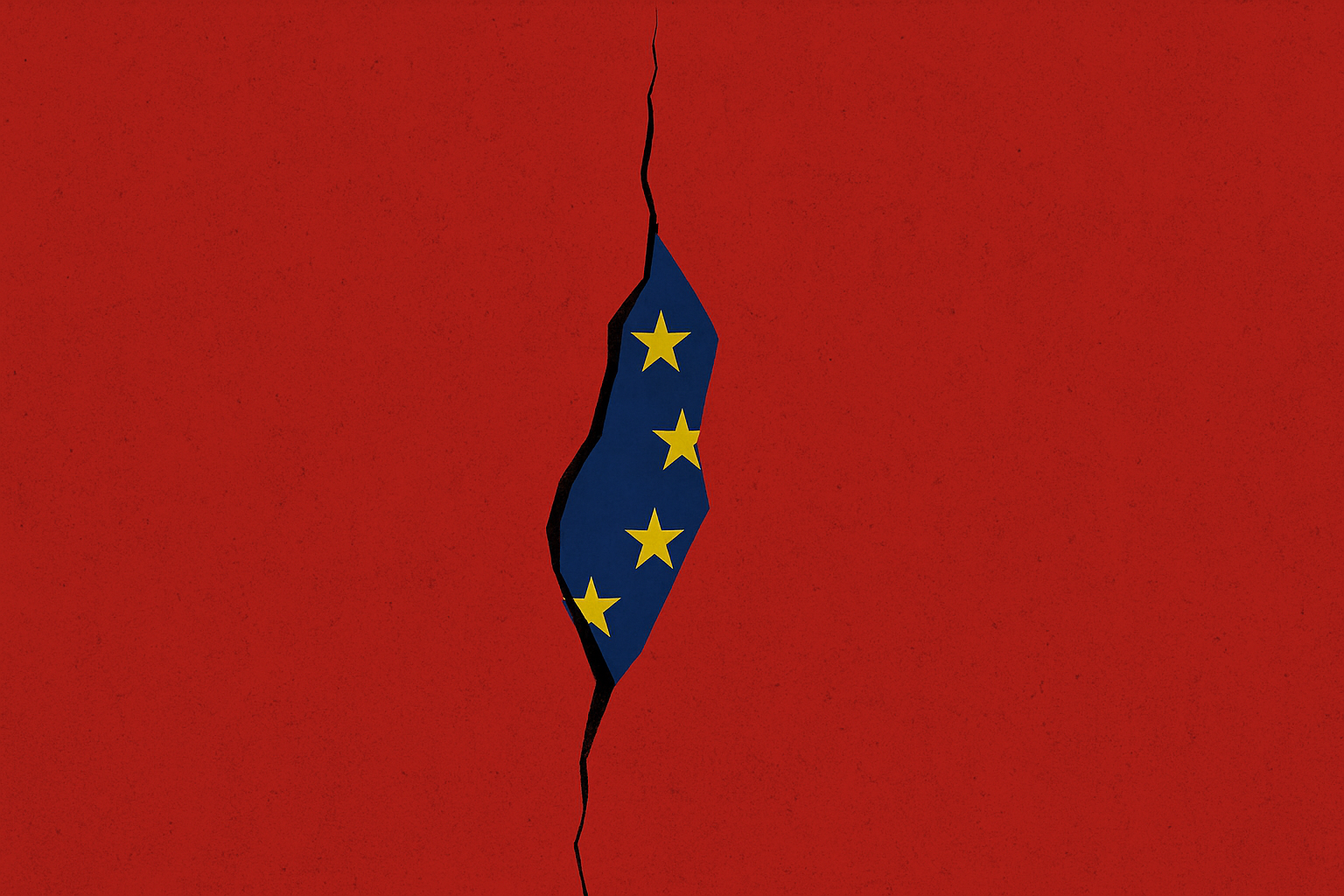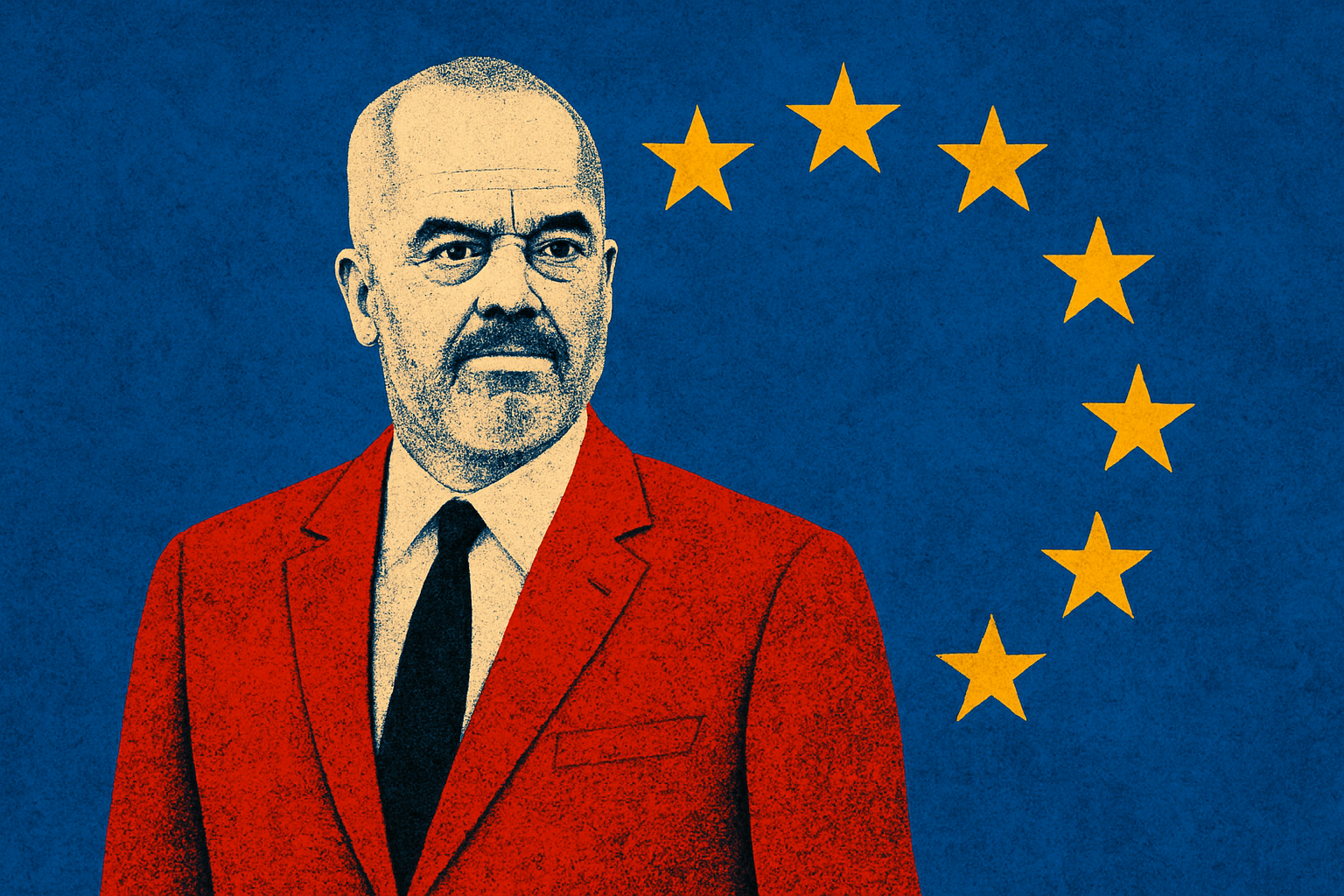At Bled, Europe debates war, peace and the future of enlargement
Leaders at Lake Bled weighed war, security and enlargement, with new timelines floated for Montenegro and Albania’s accession bids.
Andraž Tavčar
The placid waters of Lake Bled gave little hint of the unease inside the halls. At the jubilee Bled Strategic Forum, its 20th iteration yet, leaders traded views on a world unsettled by Russia’s war in Ukraine and by violence in Gaza. António Costa, the president of the European Council, urged Europe to invest more in its defence and humanitarian capacities, and warned that the Union must be prepared for simultaneous crises.
Yet enlargement also re-emerged as part of the discussion. Two years ago Charles Michel used the same forum to call for readiness by 2030. Costa echoed him, calling accession “the best investment we can make” but insisting it would demand reforms, budget changes and stronger governance. He stressed that the Western Balkans, Ukraine and Moldova were not only applicants but “part of Europe’s future.”
Marta Kos, the Commission’s enlargement chief, went further. She told a panel that if technical negotiations finish on schedule, Montenegro could join in 2028 and Albania in 2029. “Rule of law, human rights, the fight against corruption and free media are non-negotiable,” she said.
Montenegro’s promise – and its politics
Montenegro has re-accelerated its accession process, closing additional negotiating chapters this year and aiming to finish talks by 2026. Prime minister Milojko Spajić highlighted electoral and judicial reforms passed with rare cross-party backing. But his coalition relies on the pro-Serb and pro-Russian “For the Future of Montenegro” bloc, whose leader Andrija Mandić is parliamentary speaker. That dependence unsettles Brussels, given Mandić’s history of opposing NATO and supporting closer ties with Moscow. His presence at the heart of government is especially sensitive in light of the 2016 coup attempt, when Montenegrin prosecutors accused Russian agents and local pro-Serb politicians of plotting to overthrow the government to block NATO accession.
Relations with Croatia remain sensitive. Podgorica and Zagreb are close to settling wartime disputes, including compensation for Croats detained at the Morinj camp, the fate of a commemorative plaque, and the renaming of a swimming pool in Kotor. Reports suggest a payout of €15–17 million. President Jakov Milatović criticised the process, saying he had been kept in the dark and warning that the money “could be spent more meaningfully on the needs of Montenegrin citizens.”
Rama’s bet on Europe
Albania has pushed forward since opening accession talks in 2022 and its first cluster in 2024. Kos’s suggestion that Tirana could follow Montenegro into the EU by 2029 is the most concrete horizon yet offered in years.
Economics and demography add urgency. Albania is in the midst of a third wave of emigration, with studies estimating a population decline of roughly 14% between 2011 and 2023 – a drain of skills and tax base the government hopes deeper EU integration and the Growth Plan can help offset.
Governance is the harder sell. Anti-corruption prosecutions by the SPAK special structure have risen, and high-profile cases continue, including Ilir Meta, a former president and ally of opposition leader Sali Berisha, and Erion Veliaj, the mayor of Tirana and a senior Socialist Party figure, both of whom remain in custody awaiting trial. Yet an amnesty passed in 2024 raised alarm in Brussels after dozens of convicted officials benefited from reduced or erased sentences. The European Commission acknowledged SPAK’s stronger track record but warned that the measure risked weakening the fight against corruption. The episode has fuelled opposition claims that clientelism endures under Prime Minister Edi Rama despite the stability his long tenure provides for reforms.
For Rama, the central goal remains EU membership by 2030, with accession talks concluded by 2027. The timetable is ambitious, but with pressure on the EU from Russia’s aggression and uncertainty over America’s commitment to Europe, some in Brussels see enlargement as a way to reinforce unity and influence in the neighbourhood.
A cautious mood
Costa framed enlargement as a values test and a strategic hedge, urging candidate countries to keep reforms on pace and the EU to prepare its institutions and budget. On stage, leaders from the region tried to show they are doing their part. Spajić touted electoral and judicial changes passed with super-majorities in Podgorica. Croatia’s prime minister, Andrej Plenković, injected caution, citing instability in North Macedonia, Serbia and Bosnia and the need for sustained public support inside the Union before any new flags are raised in Brussels.
What happens next will be shaped as much in EU capitals as in the Balkans. The Commission’s Growth Plan dangles money and market access in return for reforms. If that bargain sticks, the timelines floated in Bled look less fanciful. If coalition roulette in Montenegro resumes and Albania’s governance reforms stall, the decade could end with promises intact but doors still ajar.

